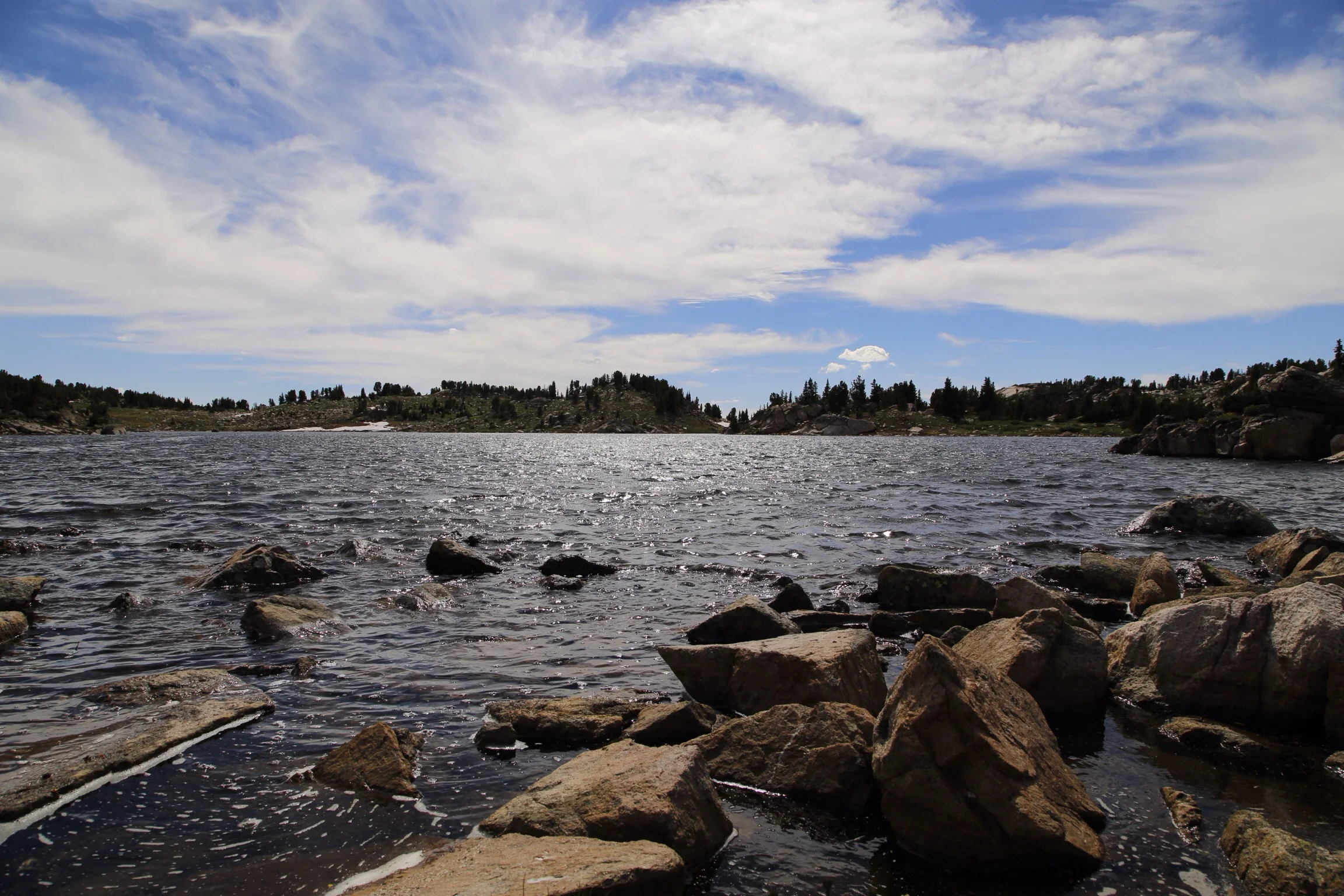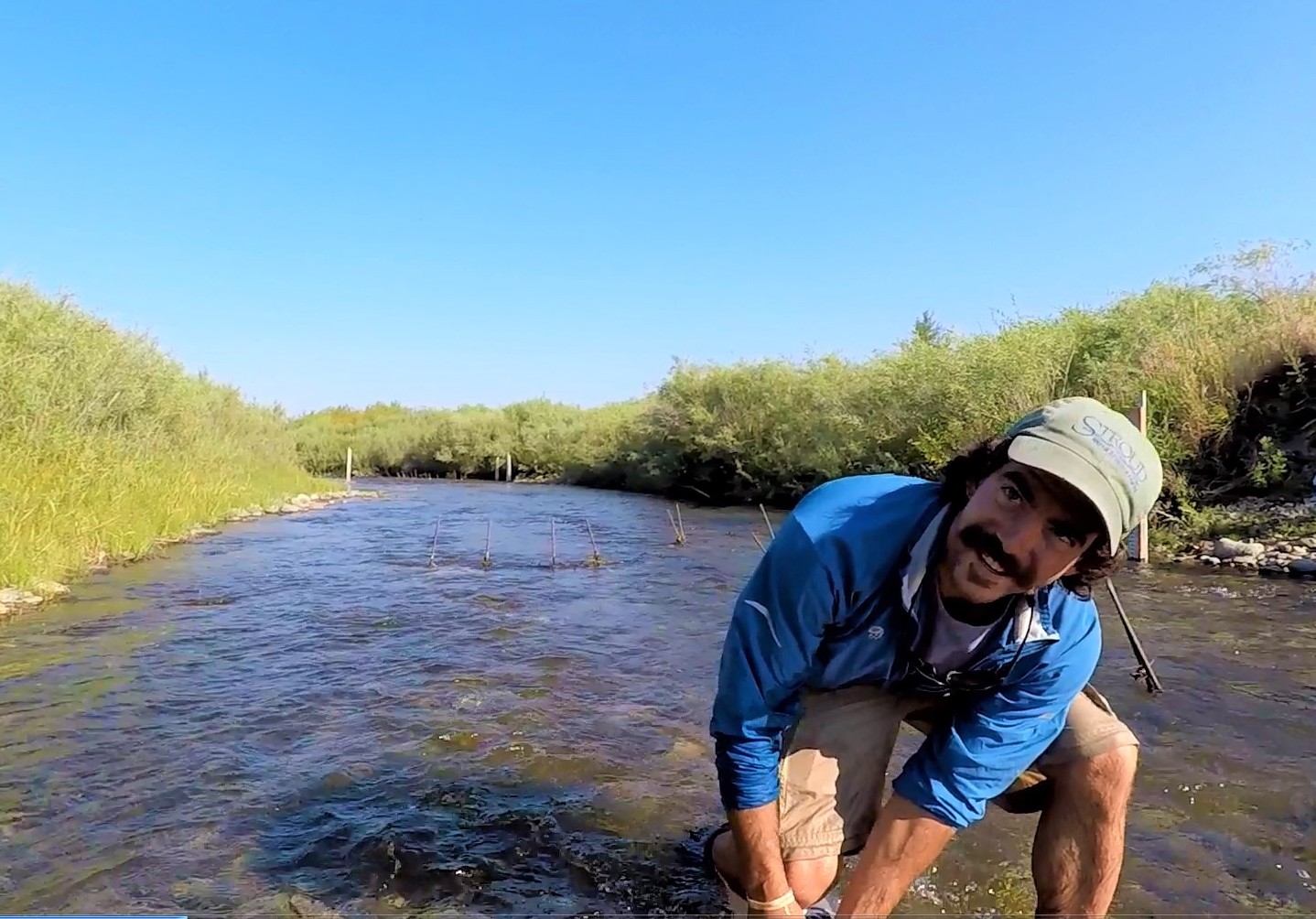Benjamin Tumolo
Aquatic Insect Ecosystem Engineering Creates Resource Hot Spots in Montana Streams
Ecosystem engineering is a ubiquitous ecological and geomorphic process by which organisms modify physical habitat characteristics, thereby influencing patterns of biological organization. Often, modification of physical environments by ecosystem engineers creates beneficial habitats and/or ameliorates harsh conditions for a diversity of species that would otherwise be absent.
Benjamin Tumolo a PhD student at Montana State University is investigating how aquatic insect ecosystem engineering by net-spinning caddisflies (Tricoptera:Hydropsychidae) may have positive effects on stream ecosystem function by creating hot-spots of insect production. His research measures how silk structures produced by net-spinning caddisflies alters near bed hydraulics and food resource availability in ways that may increase benthic community density and diversity. Findings from this work will be relevant for identifying how negative effects of altered hydrological regimes may be offset by positive interactions between ecosystem engineers and their stream communities in the face of global change.

